A Q&A with District 63 Minnesota Senator, Patricia Torres Ray
wMN Breaking Barriers spent some time catching up with her to understand her perspective on the uprising, how the community is coping with the aftermath, and the vital work we need to stay focused on to rebuild. Q: The devastation in your community is significant and I know you’ve been doing tours of the devastation in your district with politicians and policy makers to raise awareness. I’ve heard concerns from a number of people in the greater Longfellow area about big box companies coming in and building condos and chain stores as the area seeks to rebuild. I understand that you are committed to fighting gentrification. What happens next? Sen. Torres Ray: First we need to recognize that in our district, we have a significant number of activists and progressives that are committed to moving criminal justice reforms. We had a situation where an African American man, George Floyd, came to my district to purchase food at a convenience store. He is accused of using a counterfeit bill to pay and after the police are called, he is arrested and died at the hands of the police officer. That’s the beginning of this story but similar stories repeat time and time again in this country. We can’t forget that these incidents are connected to fundamental pieces we need to correct in our society. The inequalities and the unjust systems that we have put in place to correct those inequalities. We must move to build a community where people and law enforcement can coexist, where the businesses are owned by members of the community. We need systemic reforms and economic reforms that address the fundamental inequities that exist in our State. Our nonprofit sectors, cities, county agencies and business owners need to work together to build this new future. We will not lose track of the long-term vision for our community. The present crisis and need will not distract us from pursuing this path. We can't let gentrification deepen the inequities in our communities.
Q: What’s your stance on the Minneapolis City Council’s move to disband the MPD? Sen. Torres Ray: It’s important that people understand the complexity of policies behind policing practices. The criminal justice reform bills that POCI Caucus is proposing is a good start. These policies will guide use of deadly force, investigation practices, community led models of security and service, and other important changes. But right now, we also need to pay attention to changes that need to take place at local level. In my job as a legislator, and representative of my district, I need to pay attention to both. Mayor Jacob Frey, in accordance with the city council policy, manages law enforcement divisions. He is responsible for the administration, training and overall police response. All of this work gets done at the local level. People are confused about who directs police activities, and how the union and the City should negotiate a Union contract, for example. All of this work is local. People need to continue to put pressure at the local level for those reforms. People want to know how these fundamental reforms will take place and we need to do both; change state policy and change local practices. A good example of this is requiring residency. For instance, 94% of police officers that work in Minneapolis don’t live in Minneapolis. We need to change that. This residency requirement can only be done through policy. But I think the city can begin this work today, when they hire new people they can begin to recruit and hire people who live here. Q: George Floyd called out for his mama as one of the last words before his life was taken. How does your role as a mother influence your commitment to justice in this case? Sen. Torres Ray: Talking about the pain of losing a son has been one of the most difficult and emotional conversations to have. I happen to know many, many African American mothers (including Rep. Ruth Richardson, Rep. Rena Moran, Rep. Hodan Hussan and Nekima Levy Armstrong) who have been taking a stand and speaking out about this issue with more eloquence than me. I work in partnership with them because this injustice has to end. We have to make sure the perspectives of these mothers are included in reform efforts. And that is my job as a legislator, as a friend and as a mother. I cannot say I have experienced what my African American friends and mothers have experienced though and they would be better suited to answer this question. Q: There have been movements. Black Lives Matter isn’t new. Protests against injustice and police brutality and for civil rights have been happening for decades. But this feels different. Where do we go from here? Sen. Torres Ray: The importance and strength of the movement relies on the number of people involved and the diversity of the movement of today. My son who is 25 years old came to my house at 11:00 p.m. on the second night of the uprising and he said to me: ‘Mom you’re going to have to pick a side.’ At that moment, I understood his desperation and his urgent message to me. He’s wondering, ‘Who is out there taking care of people? Who is out there taking care of the young activists that were being hurt?’ He said, ‘I don’t hear who is taking care of this situation?’ It was that question from my son that made me realize how frustrated our young people actually are. My own son who has seen me do this work his entire life felt that I wasn't doing enough. And we are not doing enough. That is the urgency they are demanding; they want to see more action, more determination, more specific proposals that resolve the deep disparities we face today. And they will continue to put pressure, even when they have to pressure their own mothers to do more. This is what we need. We need that energy and that pressure for change. We need young people demanding change, demanding new investments and demanding real action. I think that’s what is different today, and I do feel that this is a new day. I have been working on this issue for 30 years in this very community. 30 years ago, there was a place called City Inc – in the building where the bank is located, across the street from Mercado Central. African American social workers were trying to preserve this place so African American kids would have a place to hang out and play. People don’t remember that Lake Street was abandoned by White people in the 80's. People didn’t want to live here. People didn't want to open businesses here. Lake Street was a depressing area and we didn’t have spaces for young people of color to play. Black and Native American social workers fought and advocated for these safe spaces. That is how I was introduced to this work. That is how I started my career 30 years ago, and the issues are still the same. But now we have more voices, more diverse voices, and we must continue to work together to bring about this change that we so desperately need. Author: Nicole Smith - Calligrapher: Kelly McMasters - Studio Photographer: Rodel Querubin
Street photography courtesy of Patricia Torres Ray's Facebook page
19 Comments
|


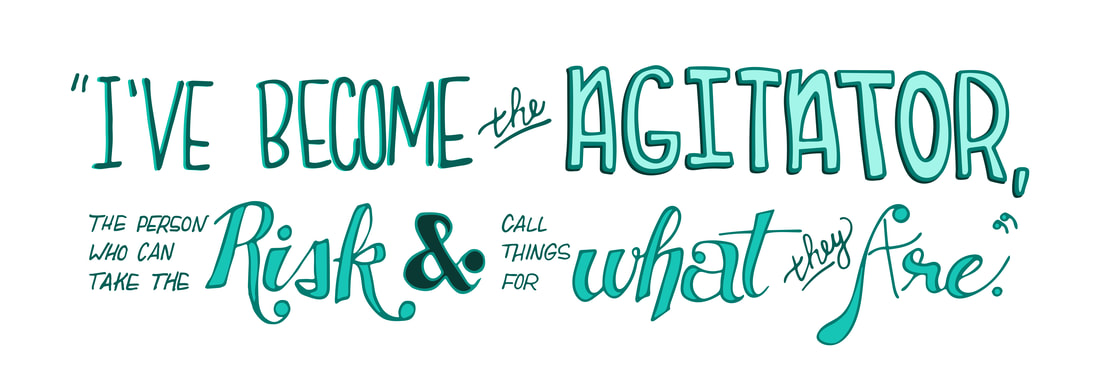
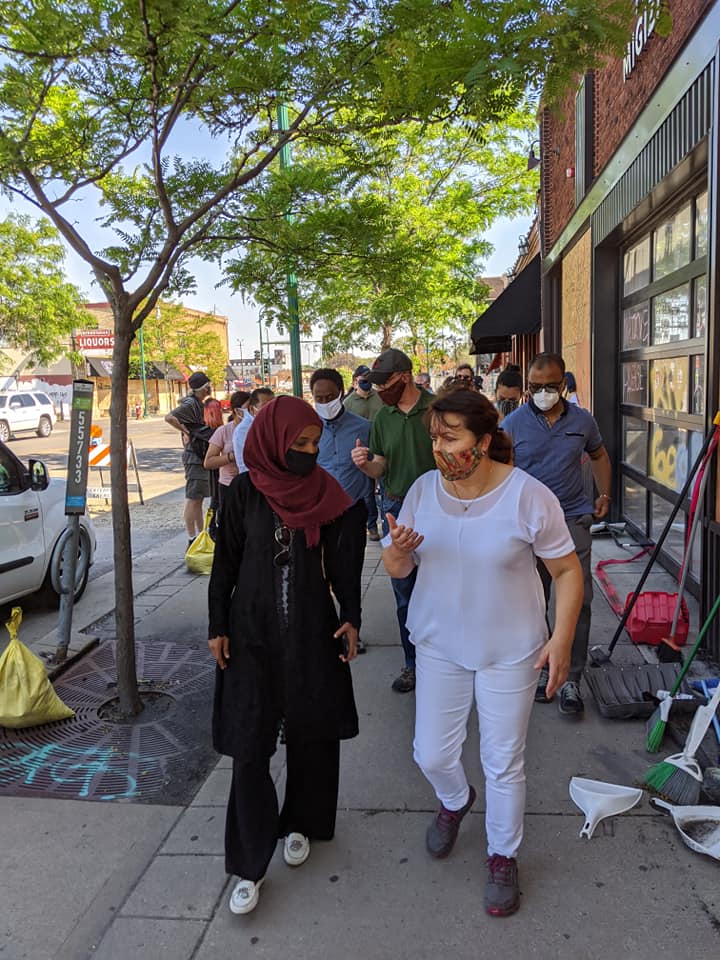
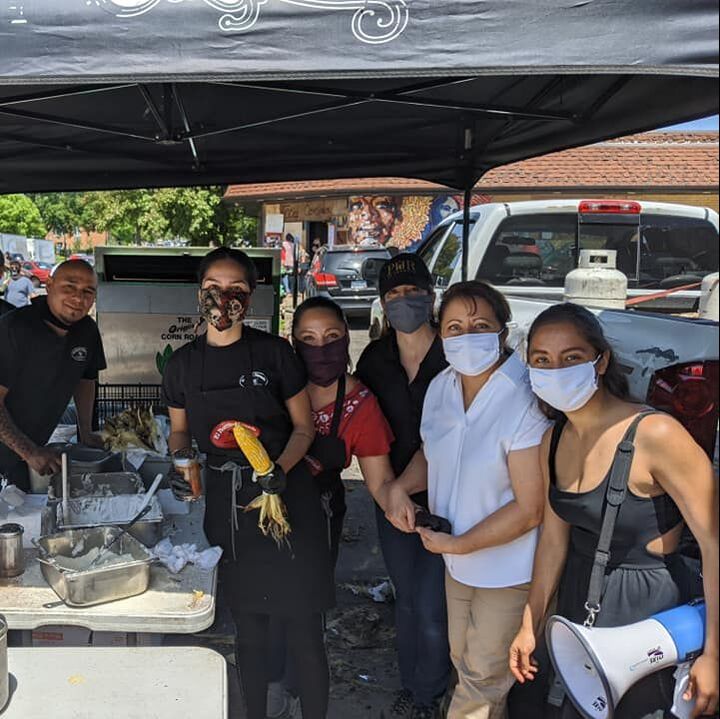
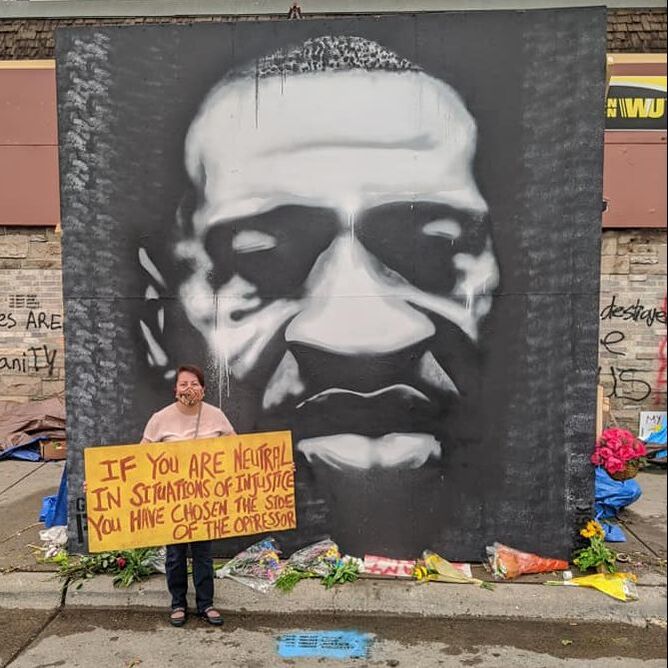
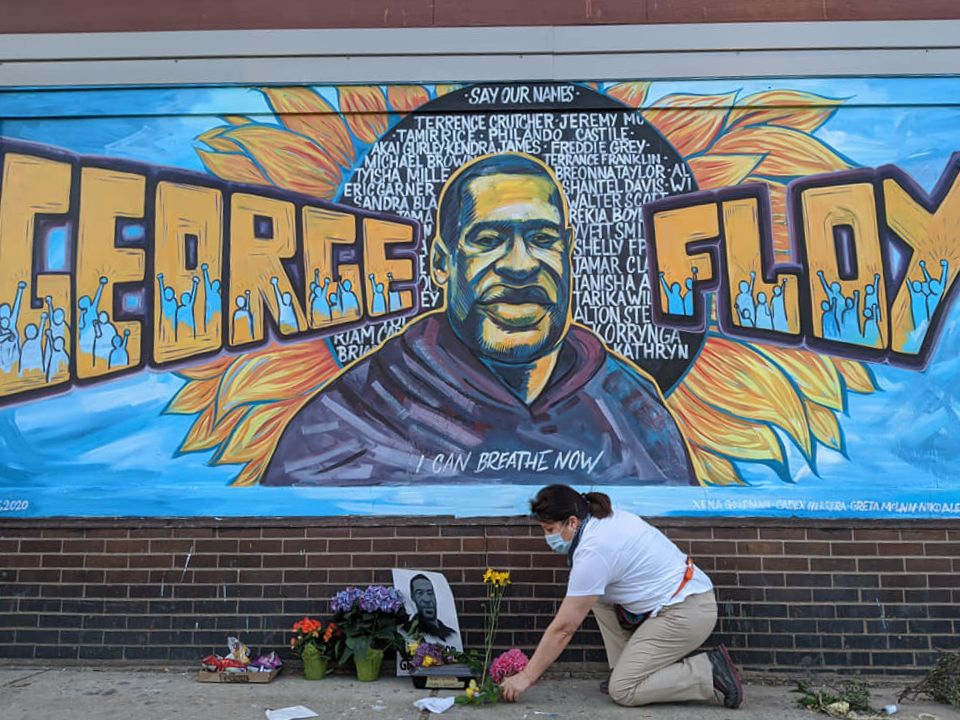
 RSS Feed
RSS Feed
